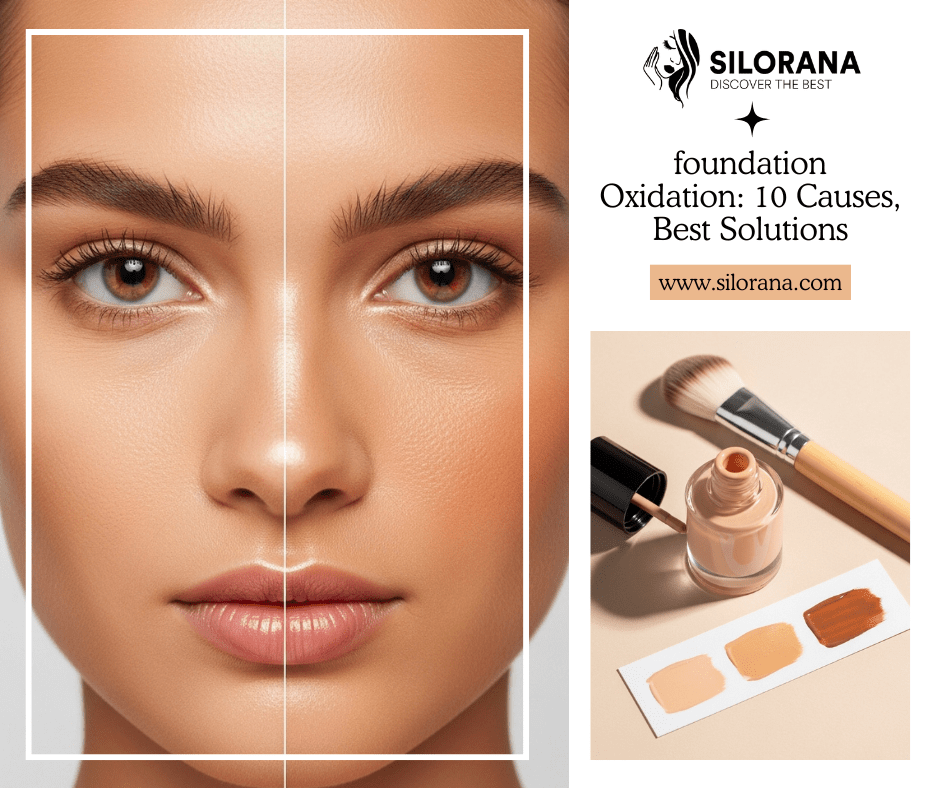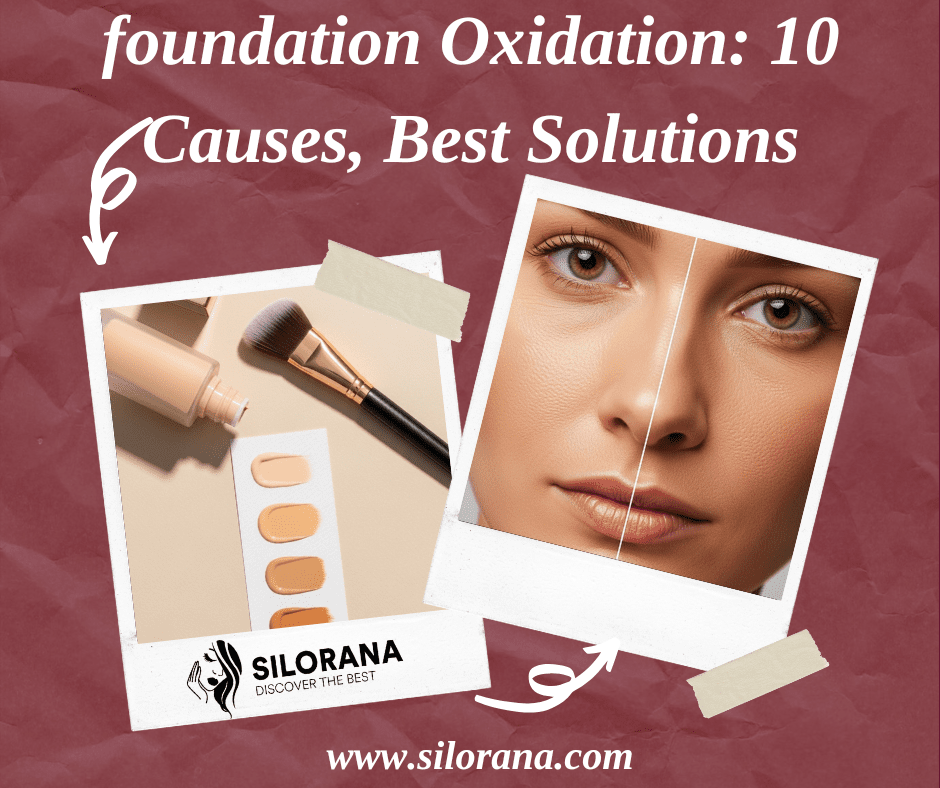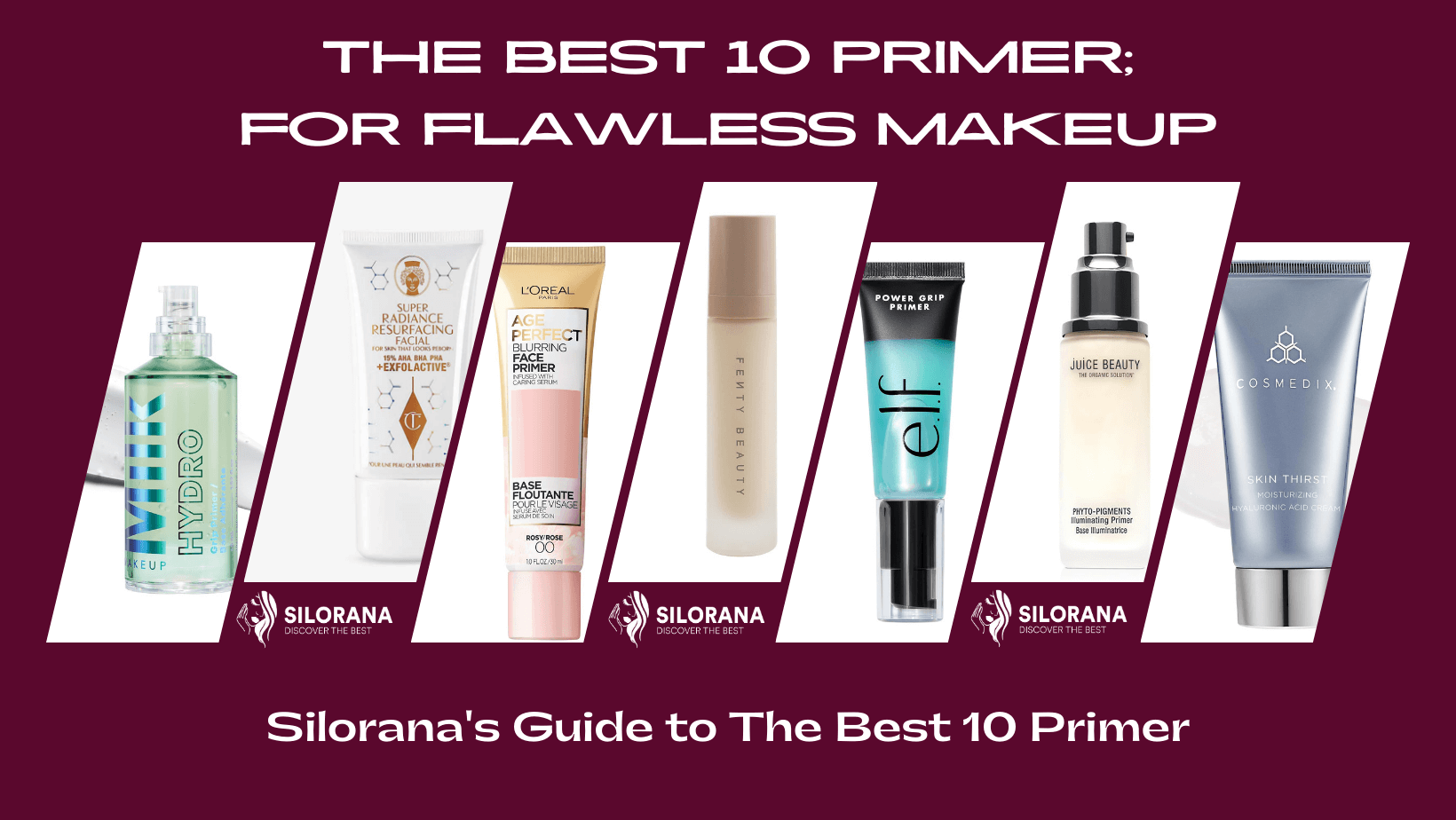In this detailed guide, we’ll explain why foundation oxidizes, how to prevent it, and which foundations resist oxidation the best — so your makeup stays flawless all day long.
In This Article
ToggleWhy Does Foundation Oxidize? Causes, Prevention, and Best Solutions
Have you ever applied your favorite foundation in the morning, only to notice a few hours later that your face looks darker or even orange-toned?
This frustrating phenomenon is called foundation oxidation, and it’s one of the most searched makeup problems.
In this article from SILORANA, we will take you on a comprehensive journey to learn about everything foundation that looks like your skin, only better and effective steps.

Don’t forget to share these tips with your friends to always have stable and bright makeup, and hair. If you need more details or want additional advice, do not hesitate to visit our website frequently.
What Is Foundation Oxidation?
Foundation oxidation happens when your makeup reacts with air, skin oils, or pH levels, causing a visible color shift — usually darker or warmer than when it was first applied.
This process is similar to how a sliced apple turns brown when exposed to oxygen — it’s natural chemistry, but when it happens to your makeup, it can ruin your look.
Main Causes of Foundation Oxidation
1. Excess Oil Production (Oily Skin)
Oily skin is one of the top reasons foundation oxidizes.
Natural oils mix with foundation pigments, especially iron oxides, leading to a darker tone over time.
Tip: Use an oil-free, matte primer to reduce the reaction.
Don’t forget to share these tips with your friends to always have stable and bright makeup, and hair. If you need more details or want additional advice, do not hesitate to visit our website frequently.
2. Wrong Shade or Undertone Choice
If your foundation doesn’t match your undertone (cool, warm, or neutral), oxidation becomes more noticeable.
When in doubt, choose a shade slightly lighter than your natural tone, as it will deepen slightly after application.
Read also about the Best 5 steps to moisturize dry skin during winter
Read also about The perfect skin care routine: How to always get radiant skin?
3. High Temperature and Humidity
Heat accelerates chemical reactions in your foundation.
If you live in a hot or humid environment, use long-wear, humidity-resistant formulas designed to stay stable.
4. Low-Quality or Expired Products
Some foundations contain unstable pigments or too many iron oxides, which react easily with oxygen.
Check your product’s shelf life — expired formulas oxidize faster.
5. Skipping Primer and Setting Spray
When foundation sits directly on your skin, it absorbs oils faster.
A good primer and setting spray act as protective barriers and help your makeup resist oxidation.
How to Stop Foundation from Oxidizing
1. Use a mattifying primer
It creates a protective layer between your skin and the foundation, reducing oil interaction and maintaining color accuracy.
2. Blot excess oils before applying foundation
Use oil-absorbing sheets or a lightweight toner to control shine before makeup application.
3. Apply thin layers
Thick layers trap heat and oils, increasing oxidation. Build up coverage gradually for a more breathable, long-lasting finish.
4. Set with a translucent powder
A high-quality setting powder locks everything in place and prevents shade shifting throughout the day.
5. Finish with a setting spray
Hydrating sprays like Urban Decay All Nighter or Charlotte Tilbury Airbrush Flawless Setting Spray seal your makeup beautifully.
Best Foundations That Don’t Oxidize
Estée Lauder Double Wear Stay-in-Place Foundation — famous for zero oxidation and 24-hour wear.
NARS Natural Radiant Longwear Foundation — ideal for dry to combination skin.
L’Oréal Infallible 24H Fresh Wear — lightweight, breathable, and oxidation-resistant.
Fenty Beauty Pro Filt’r Soft Matte Foundation — perfect for oily skin, with minimal color shift.
Maybelline Superstay 30H Foundation — affordable yet highly durable.
Conclusion: Elevate Your Beauty Level With Foundation Oxidize
Foundation oxidation can happen to anyone — but with the right products and routine, it’s completely preventable.
Focus on oil control, proper shade selection, and setting techniques, and your makeup will stay true to tone all day long.
Stay confident, stay radiant, and let your foundation work with you, not against you
Don’t forget to share these tips with your friends to always have stable and bright makeup, and hair. If you need more details or want additional advice, do not hesitate to visit our website frequently.
Fifth: Frequently asked questions about the right foundation shade
1. Why does my foundation turn orange after a few hours?
This happens due to oxidation — when pigments in your foundation react with air, oils, and moisture. Using a mattifying primer and setting powder helps control the reaction.
You can also test oxidation by applying a swatch to your wrist for 10 minutes before buying.
2. Can I fix oxidized foundation without redoing my makeup?
Yes! Use a translucent powder or a brightening finishing powder to tone down the darkness.
Alternatively, blend a small amount of light foundation or concealer over oxidized areas for a quick refresh.
3. Does sunscreen cause foundation to oxidize?
Some sunscreens can trigger oxidation, especially those with titanium dioxide or zinc oxide combined with oily ingredients.
Opt for oil-free, lightweight, or gel-based sunscreens that won’t alter your foundation’s chemical balance.
4. How can I prevent foundation oxidation on oily skin?
Prep your skin properly — use oil-control skincare, a mattifying primer, and powder setting products.
Avoid overly hydrating moisturizers before makeup, as they can increase shine and speed up oxidation.
5. Can environmental factors like heat and pollution cause oxidation?
Absolutely. UV rays, high humidity, and pollutants accelerate chemical reactions in foundation.
Using antioxidant serums and SPF protection before applying makeup helps reduce the impact of environmental stressors.







